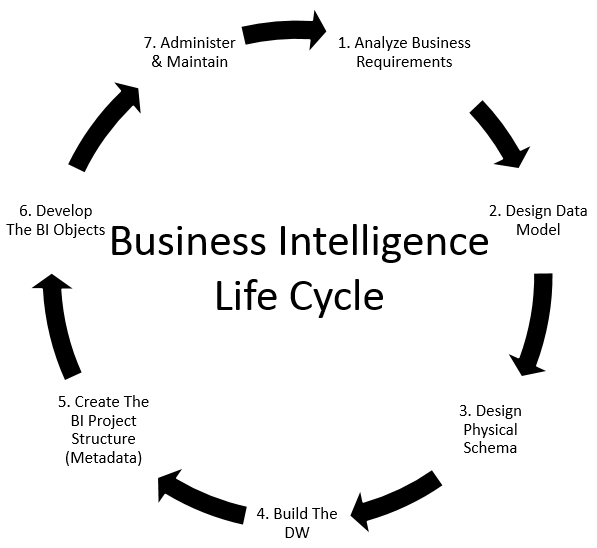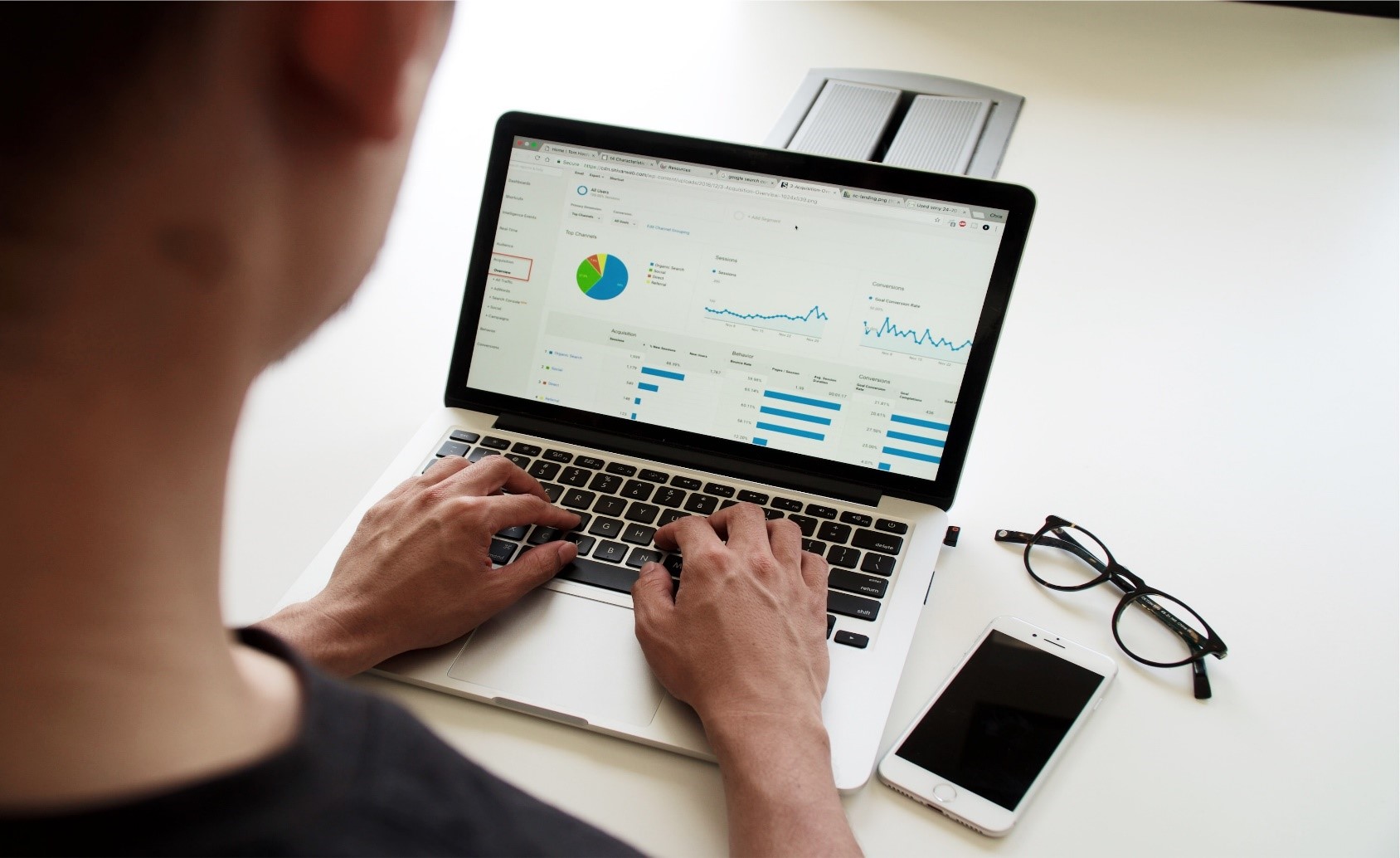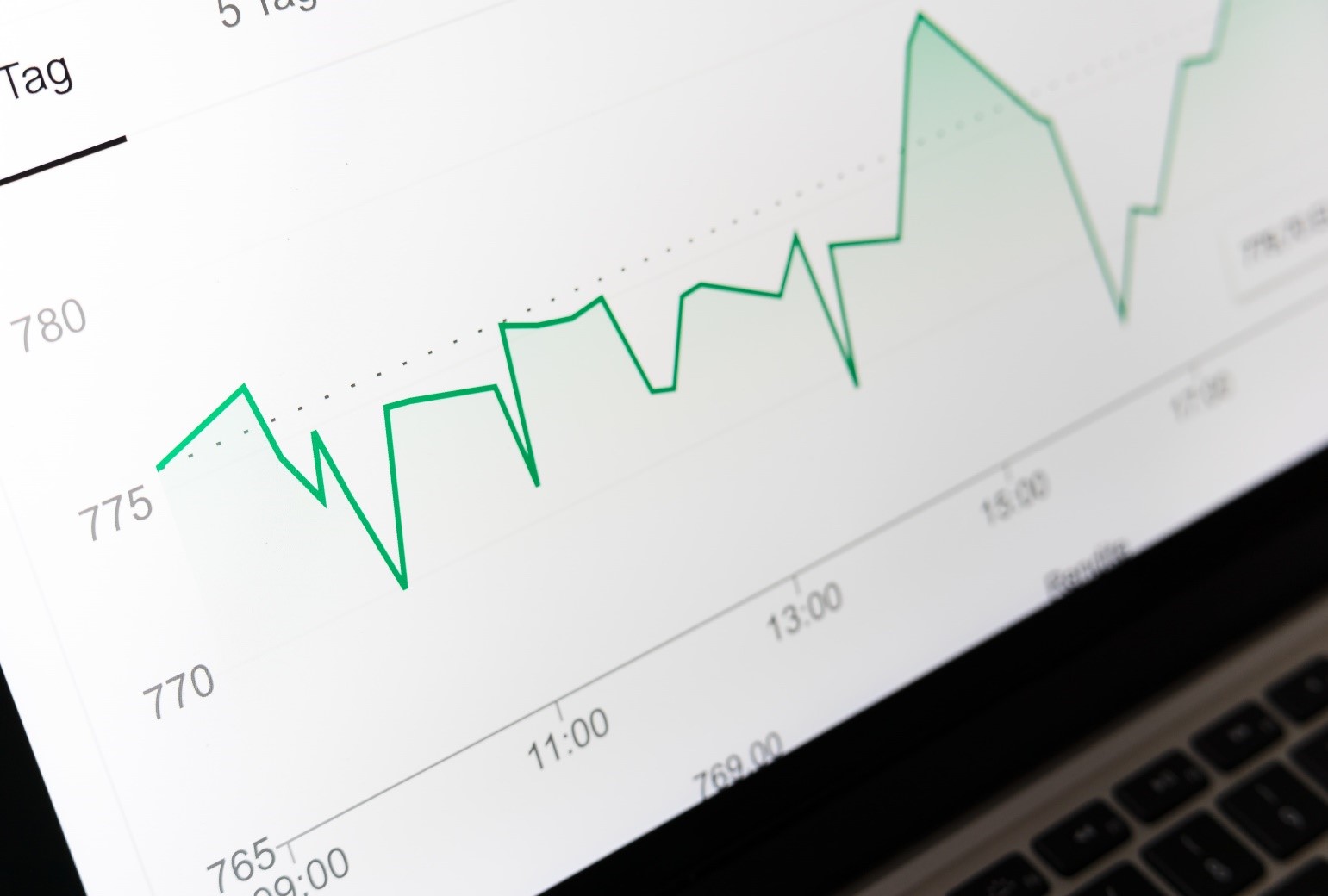“Companies using analytics are 5x more likely to make faster decisions” – Bain & Company
No definite definition:
If you tried to search the term Business Intelligence you will not be able to find a one absolute definition. However, we think that the easiest way to understand it is that Business Intelligence (BI) is a tool that consists of a chain of processes. These processes aim to provide its users with an output of understandable data that one can rely on whenever they're making decisions.
Markets move fast; and in the importance of moving accurately and quickly lies BI’s raison d’être; the markets move fast and the companies shouldn't only move fast but also each taken step should be accurately investigated. Thanks to BI, companies are able to make accurate decsisions based on the analyzed data.
What's the purpose behind the BI technology?
The main purpose behind BI's to help companies make better and more informed business decisions. It helps corporate executives, business managers, and other operational workers in taking the best decisions that their business need in order to succeed. The outcomes of the BI process is also, usually used by marketing teams to spot market's trends and then they'll have the ability to tailor their companies' marketing plans in order to boost their profits.

Source: nicobudidarmawan
The BI Process:
The BI Process undergoes a number of stages:
- Process's aim identification: what's the type of data that needs to be analyzed? What kind of data needs to be tracked down to improve your decision making process?
- Data Collection: After knowing what exactly are yourbusiness needs, you'll be able to identify the sources where you'll get them.
- Data Cleansing: It's the essential stage of BI. This stage is about the filteration of the unneeded or the corrupted raw dara and the sorting-out of the remaining data to use them in the upcoming stages.
- Analysis of collected data: After collecting and cleansing the data, you proceed to the analyzing stage. During this stage, you have to come to conclusions taken based on the information provided from the collected data.
- Decision making: If you have information, you can easily convey decisions.
BI’s Importance:
Business Intelligence has numerous advantages.
- Eliminating the guess work: thanks to BI’s data analysis process, each step is very well studied and is being taken based on solid proofs that it will achieve the desired results.
- Where the business has been, where it is now and where is it going: BI uses past and present data of your business and it provides you with the needed insights. Therefore, it'll help you know where your business is headed; and you'll know what are its exact needs to get a bigger and stronger.
- Get insights into your customers’ behavior: BI does not only help you get insights about your company but it also helps you get better insight about your customers.
- Better and faster decisions: As a result of having insights inside out (insights about your company and your customers) you’ll be able to take better, faster and more error-free decisions.
All this will lead to an improved efficiency for your company.





